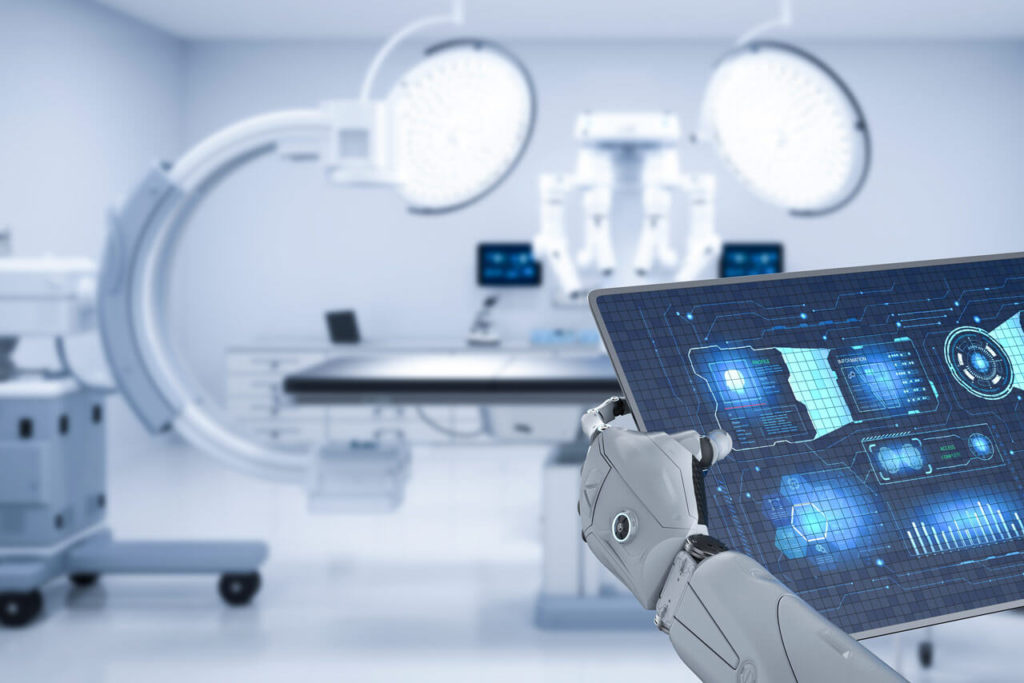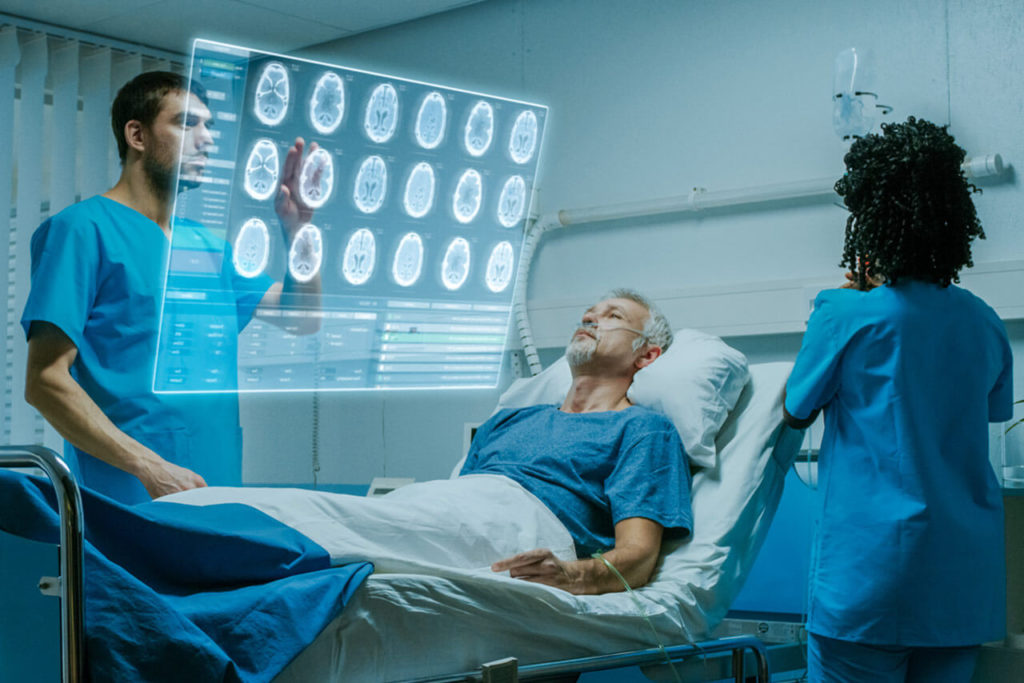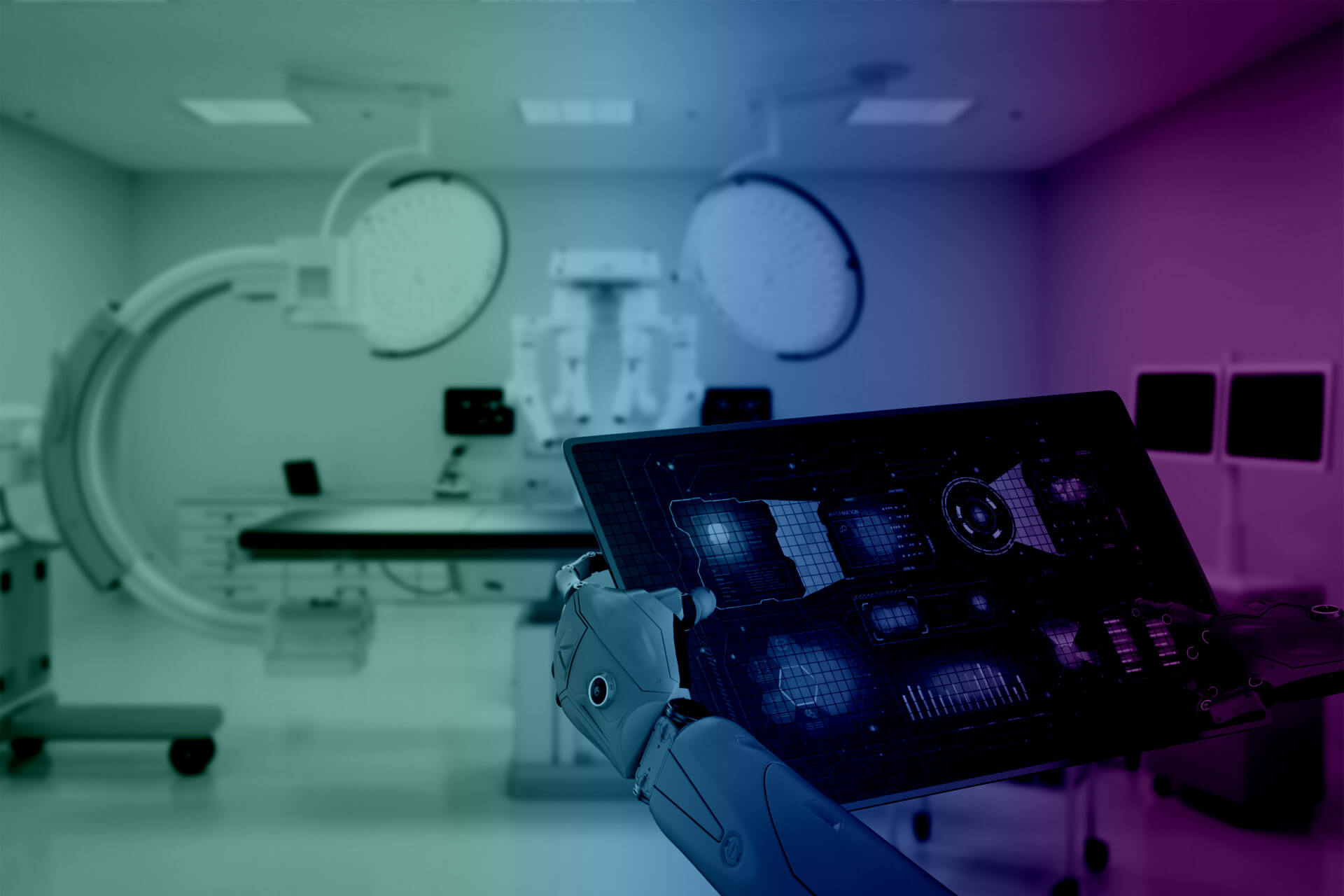We live immersed in a technological revolution that seems to have no end. We have barely adapted to a new technology when a new one rears its head. In the health area, the adoption of new technologies is increasingly present in all types of healthcare centers with a clear objective: to offer the best service to patients. In this context, we can glimpse certain trends and new technologies that will be present in the hospitals of the future.

If we think about the hospitals of the future, we all have a mental map of how they should be: safe, modern, specialized, efficient, … These are characteristics to which all healthcare centers aspire and serve as a guide for the work of researchers and experts .
A report on the future of leading hospitals in Europe managed by the Spanish business school IESE in 2016 indicated the need to invest in technological innovation in healthcare processes to improve the quality and efficiency of the healthcare system. From ETKHO, in this article we ask ourselves about the trends that we will see in the hospitals of the future as a result of research, social changes and the natural evolution of the health system.
Energy efficiency and reduction of environmental impact
Humanity evolves at an unstoppable rate, characterized by insatiable consumerism, which shows us that sustainability is not a trend, but an imperative.
In this context, concepts such as energy efficiency, reduction of environmental impact, carbon footprint or responsible consumption have long been installed among us. The first times it was in the business environment. Little by little, it has also been transferred to the domestic sphere, public services and, of course, it has also reached the health world. A sector that, due to the high cost of treatments and machinery, needs to be more efficient than ever.
As if it were a company, in the hospitals of the future there will be goals or objectives and also a control to reduce expenses. Energy management, for example, is vital when it comes to making the healthcare center building profitable, especially if we are talking about hospitals that, due to their size and medical equipment, use twice as much energy as other types of buildings .
Achieving energy efficiency in the hospitals of the future, therefore, requires a strong commitment and development of best practices. In this sense, the first step would be to review all the machinery of the center and, when necessary, change it to more efficient and low-consumption equipment.
Good maintenance and use of medical equipment will also help reduce energy consumption. In this sense, also the training and awareness of the personnel working in the hospital center is vital to achieve energy efficiency.
In this context, it is worth highlighting, for example, the work of the most sustainable hospital in Spain, Hospital Fraternidad-Muprespa Habana in Madrid, a title that they have achieved thanks to different actions:
- Recovery and treatment of recyclable water.
- Thermal and acoustic insulation.
- Choice of low consumption luminaires.
- Use of digital technology.
This hospital has gone one step further and has, for example, a photovoltaic solar roof. In addition, thanks to the location of the building, it can be said that it contributes to the urban sustainability of the environment in which it is located since it is central, accessible and close to different forms of public transport.
Clinical safety
To improve patient care and safety, work must be done to provide care without failures or adverse events.
This is not only an ethical requirement, but also an economic one if we take into account the efficiency of hospital work. Patient care without harm or adverse events leads to less use of resources and therefore to cost savings, that is, greater clinical and economic efficiency.
To improve the clinical safety of any hospital or healthcare center, the first step is to carry out an analysis of its status by a professional team such as ETKHO consultants. Through our advisory service, our electrical safety specialists can evaluate existing installations in order to detect failures, weaknesses, potential risks and also offer safer and more sustainable solutions.

Artificial intelligence
If there is something that will revolutionize the hospitals of the future, it is artificial intelligence (AI). Without technological innovation we cannot speak of hospitals of the future. In fact, technology will become another tool for the medical team and patient care.
One of the areas in which interest in artificial intelligence is growing is radiology. In fact, studies are being carried out with computers trained to interpret images, although there is still a long way to go before betting on automation with machines in hospitals and healthcare.
Another asset that artificial intelligence facilitates in the field of health is the reduction of time for administrative tasks such as scheduling consultations or patient registration. The use of AI in the hospitals of the future is also being studied to:
- Recognize speech and provide providers with the transcription of the conversation between doctor and patient, recording the pertinent notes and making it easier for the doctor to dedicate more time to humane treatment and analysis of the patient’s health.
- Facilitate diagnosis: Facial recognition through mobile devices can be one of the applications of artificial intelligence that we will see in the hospitals of the future. Thanks to facial recognition, the detection of dermatological conditions can be speeded up, for example.
- Prescriptions and medical records in electronic format: How many times have you not been able to understand the doctor’s letter? Fortunately, thanks to technology, computers are being used more and more and doctors do not need to write. In this sense, in the hospitals of the future the prescription will be online, using codes that are easier to use. In addition, the ability to consult the electronic history also streamlines the work of the medical team.
- Virtual Reality Therapies: Already occurring in parts of the United States where digital therapies are used to treat phobias, improve sleep quality, or control obesity among adolescents and patients with type 2 diabetes.

The role of electrical safety in the hospitals of the future
As we have seen throughout this article, technology will play a leading role in the development of new technologies for the hospitals of the future.
Health centers will be increasingly digitized and the use of technology will be part of all processes: from administrative tasks to assessment of the patient’s condition, performing surgical operations, health control and care, etc. In this context, ensuring electrical safety in the hospitals of the future is an imperative that we cannot ignore.
If at present, an electrical failure can result in poor medical care and harm the patient, in the hospitals of the future any adverse event at an electrical level could be to cause a health disaster since, in a certain way, the hospitals of the future will be more Dependent than ever on energy and electrical systems.
To have the peace of mind that nothing alters this energy dependence, it is important to have electrical safety equipment and services. Thus, at ETKHO we are specialists and providers of technological solutions for hospital electrical safety such as uninterruptible power supply systems, ground connections, electrical outlet hospital panels or batteries and transformers for medical use. Linked to ETKHO’s commitment to sustainability and the environment, all these products are energy efficient.
In short, in the hospitals of the future, clinical and economic efficiency, the use of technology and clinical safety go hand in hand. The greater the use of technology, the greater the efficiency and the greater the need for electrical safety. And, at the same time, the more we work on clinical safety and better care, the hospital will face fewer adverse situations, therefore, it will be able to reduce costs, which will also be a benefit for patients and for the sustainability of the sanitary system.



